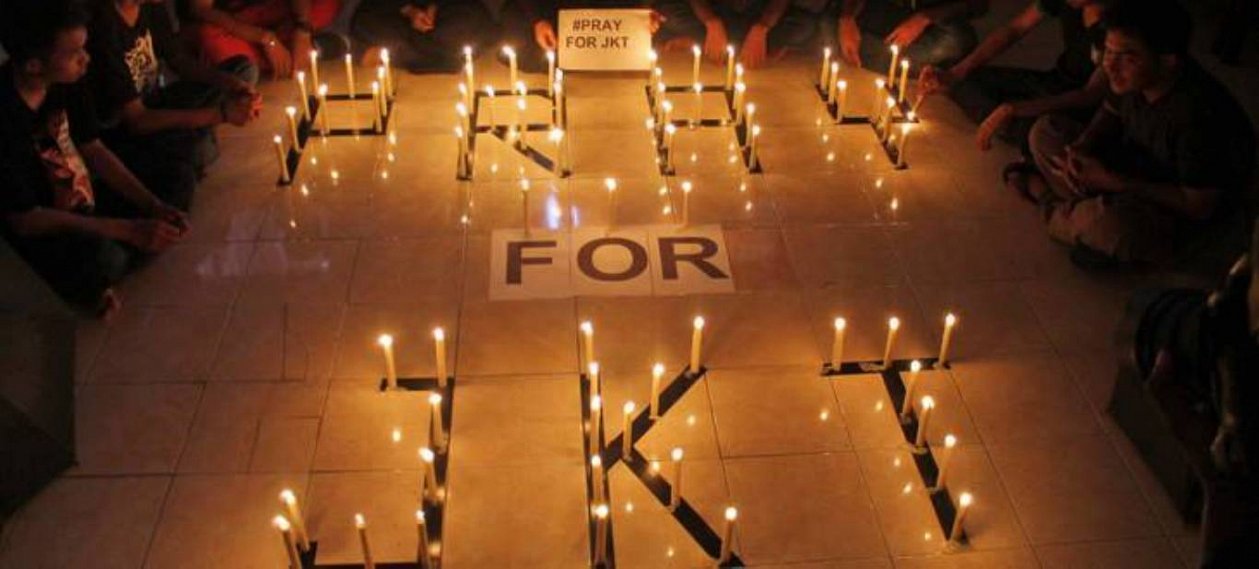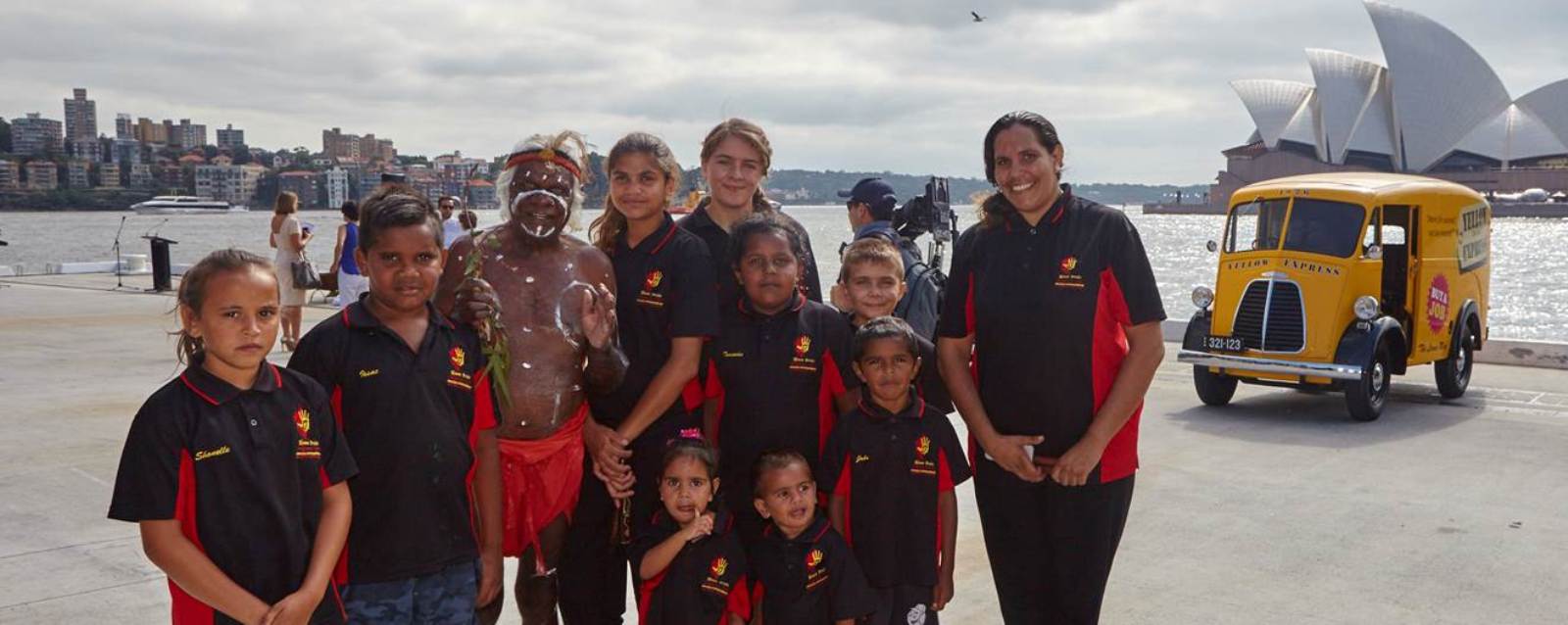Jakarta attacks: terror hits our neighbours
Australian experts are advocating for building stronger relationships with Indonesia after the Jakarta bombings, inspired by ISIS earlier this month, claimed eight lives, including four civilians.
Ross Taylor, president of the Indonesian Institute in Perth, told The Point Magazine the Jakarta attacks, although disturbing, came as no surprise to many Indonesians abroad and here in Australia.
“Certainly for Australians here from an Indonesian background who are engaged with Indonesia, it’s a combination of outrage but also there was a degree inevitability that this was going to happen. In that context sadly it didn’t come as an immense surprise. That’s a view that’s shared by a large portion of the community,” Taylor said.
He said that while Australian and Indonesian intelligence sharing has been a success, that relationship needs to be extended at a government and community level.
“In the last two or three years the Indonesian national police have prevented dozens of planned terror related attacks and some of those have included Bali. The reason why they have not been successful is largely due to intelligence sharing with Australian authorities. After the Bali bombings the local authorities came down hard and the relationship with Australia helped a lot.”
Taylor said the Australian media also has a part to play in helping establish a stronger relationship with Indonesia.
He said Australian media and social media coverage surrounding the attacks displayed a notable ignorance of Indonesian affairs.
Most Australians are not only disengaged with Indonesia at a political awareness level, but have an appalling understanding of them not only as a nation but also the people and their culture. That’s the real challenge... for us to become more aware and involved.”
“Most Australians are not only disengaged with Indonesia at a political awareness level, but have an appalling understanding of them not only as a nation but also a the people and their culture. That’s the real challenged is for us to become more aware and involved.”
– Ross Taylor, President of the Indonesian Institute
Taylor said that after the Bali attacks, extremists splintered into smaller groups with limited expertise and reduced capability to engage in terrorist attacks.
He said all that might change once foreign fighters return to Indonesia from Syria and Iraq, bringing new skills with them.
Dr Rohan Gunaratna, Head of International Centre for Political Violence and Terrorism Research in Singapore, told The Point Magazine the Jakarta attacks are part of a growing ideology in the region.
“To be honest we could have seen a larger death toll on the Jakarta attacks, but those who committed the attacks were amateurs and had they had the right expertise it could have been worse. When jihadists start coming back home quite possibly they will bring with them bomb making expertise and strategic planning of how to carry them out.”
“The leader of Jamaat Islamiah Abu Bakr Bashir, today supports ISIS. The threat in Indonesia and across South East Asia has grown several folds (since the Bali bombing). As South East Asia is in Australia’s immediate neighbourhood the development of ISIS centric threat landscape including the establishment of ISIS satellite in the Philippines and in Indonesia will present a serious threat to the stability and security of Australia.”
Dr Gunaratna said the regional threat will change the way ISIS supporters within Australia will seek out terrorism training.
“Historically a few Australians have travelled to the Philippines for training. Instead of travelling to Syria for training in future it is likely that they will participate both in training and fighting in South East Asia and in Australia respectively.”

Regional threat
The regional threat is heightened by the lack of efficient rehabilitation programs for convicted terrorists within Indonesia. A 2013 report by the Institute of Policy Analysis of Conflict indicated that Indonesia’s judicial system has insufficient funds, infrastructure and resources to appropriately manage successful rehabilitation of former terrorists.
“This lack of post-detention care leaves terrorist inmates at risk of returning to violence, because they are not being properly assessed. They do not receive sufficient re-programming to prepare them to return to mainstream society...upon release, they will be ready to rejoin the movement,” Noor Huda Ismail, founder of the Indonesia-based Institute of International Peace Building, wrote in The Conversation in the wake of the Jakarta attacks.
Ismail, a PhD candidate at Monash University, founded the non-profit institute after learning that one of his former college roommates was one of the Bali bombers. Speaking previously to The Point Magazine, he said a key aim of the institute is to “facilitate the social reintegration of violent actors, as well as victims or survivors of violence, by encouraging the use of alternative curative efforts.”
One method the institute employs is running cooking classes for convicted terrorists.
“Some have gone on to cook in restaurants after their release. The former terrorists are taught new skills including some which take them from holding an AK-47 to a [kitchen] knife,” Ismail said.
Grassroots response
There has been a strong grassroots message of defiance from Indonesian civil society in the wake of the Jakarta attacks.
The message "#prayforJakarta" was displayed on an electronic screen above the Starbucks cafe where the attack took place, as hundreds of locals gathered holding up signs of defiance reading “We are not afraid.”
Local responses to the ISIS attacks have ranged from the religious to the humorous.
“Indonesians have been using comedy in the face of the attacks with lots of funny memes online aimed at showing how resilient everyone is.... (But) there has been mostly condemnation from people including religious programming denouncing terrorism and a TV show had two little girls in jilbabs reciting a sermon about how Islam condemns violence in front a big crowd,” Aubrey Belford, correspondent for Thomson Reuters told The Point Magazine.
Endy Bayuni, senior editor at the Jakarta Post told The Point Magazine, “The attacks in the streets of Jakarta showed Indonesia’s resilience to terrorist attacks, including the quick police response, but they also exposed weaknesses in the nation’s counter-terrorism measures, particularly the intelligence failure to monitor the movements of former terrorists and the government’s de-radicalisation program.”
The Point
Australian experts are advocating for building stronger relationships with Indonesia after the Jakarta bombings, inspired by ISIS earlier this month, claimed eight lives, including four civilians.







